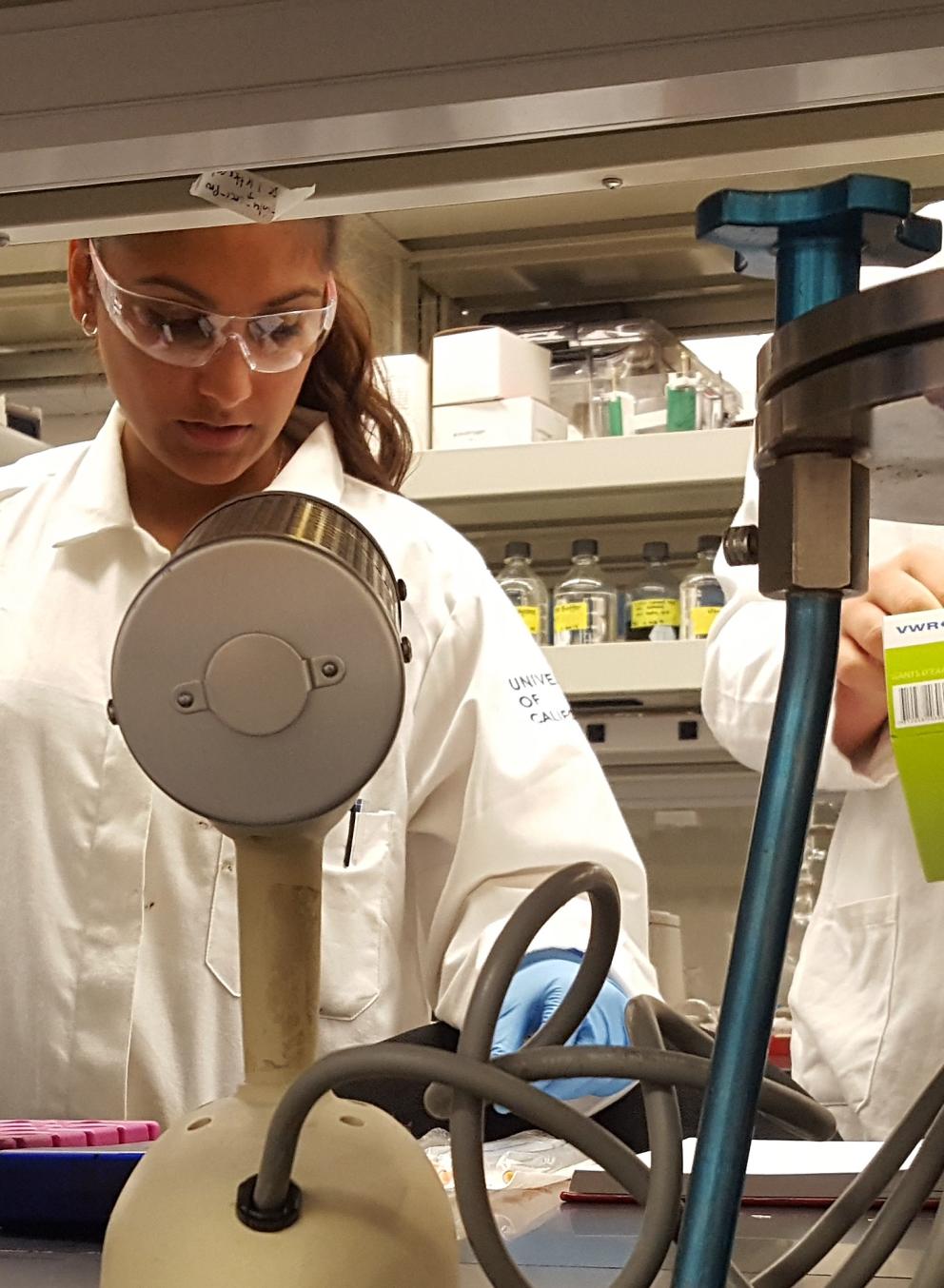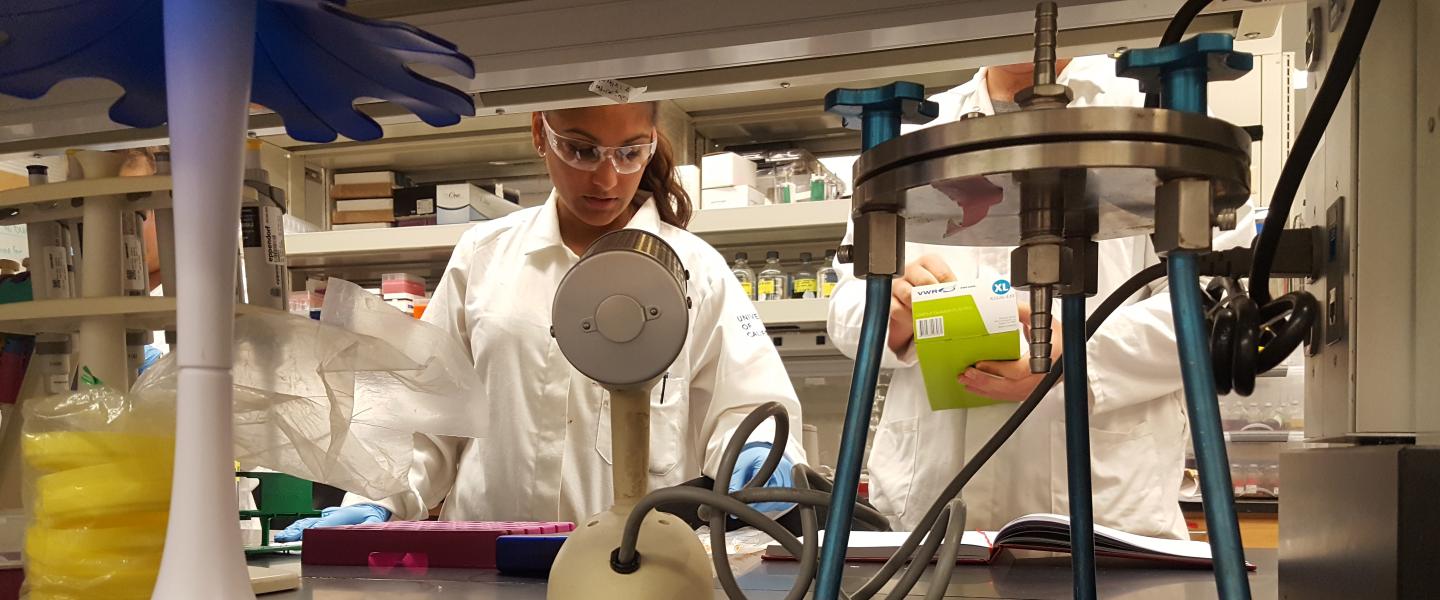Program Overview
If you’re looking to study the impact of microorganisms on humans and the environment, consider majoring in the new Microbiology degree. Students in the Microbiology major will learn fundamental concepts in biology using microorganisms as model systems, as well as the importance of microorganisms to life on earth. They will develop their understanding of the scientific method and will engage in hands-on laboratory experiences.
- Advising provided through Department of Chemistry and Biochemistry
- Major
- 4+1 Bachelors & Masters
- Science & Math
Career Outcomes
Microbiologists work in a number of capacities: as researchers in the biomedical, environmental, and basic science fields in health, industry, and academia; in clinical and public health diagnostics labs; in quality control and quality assurance, industrial microbiology; as educators; as governmental workers focused on public health and/or policy.
Program Contact


